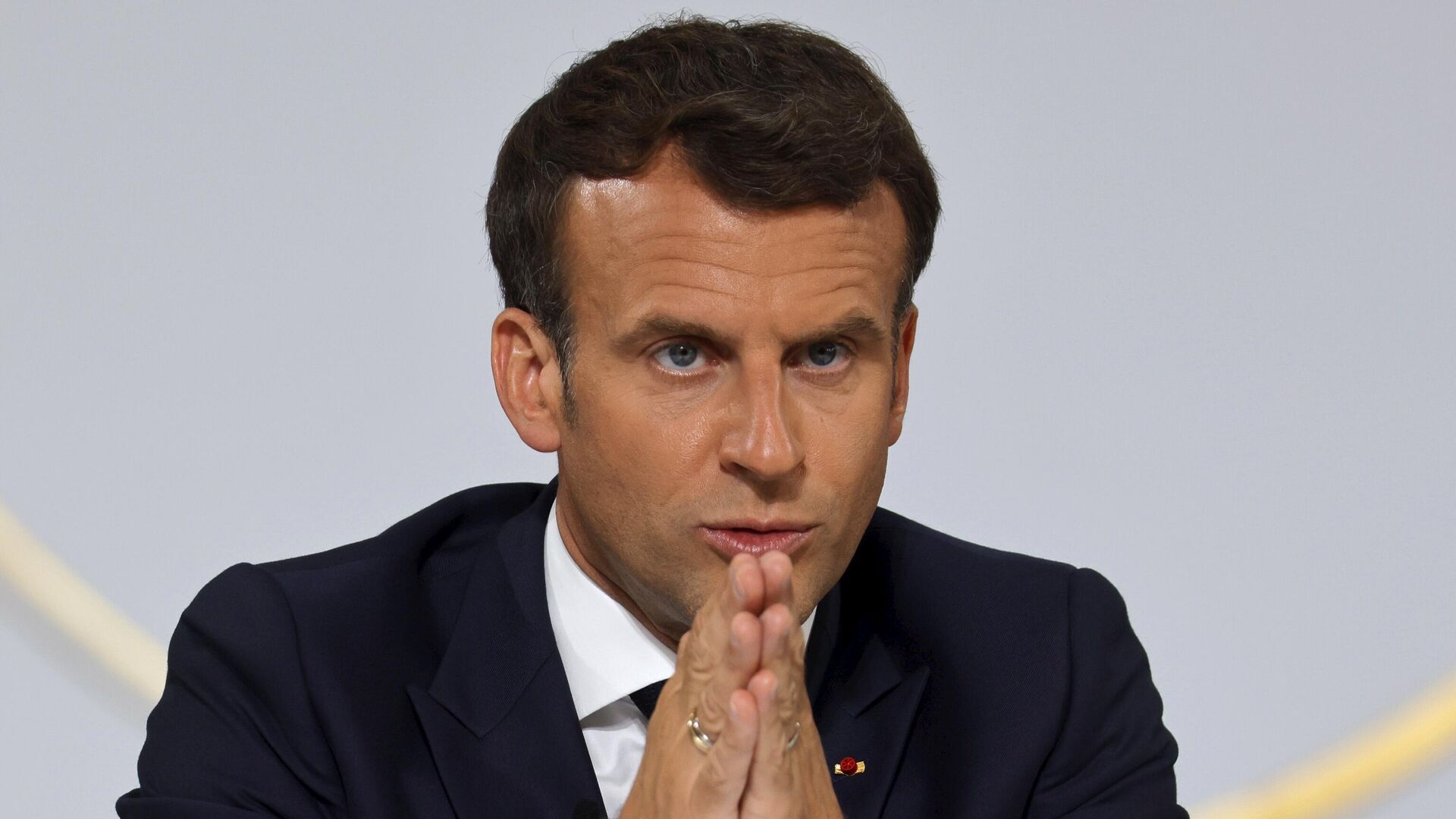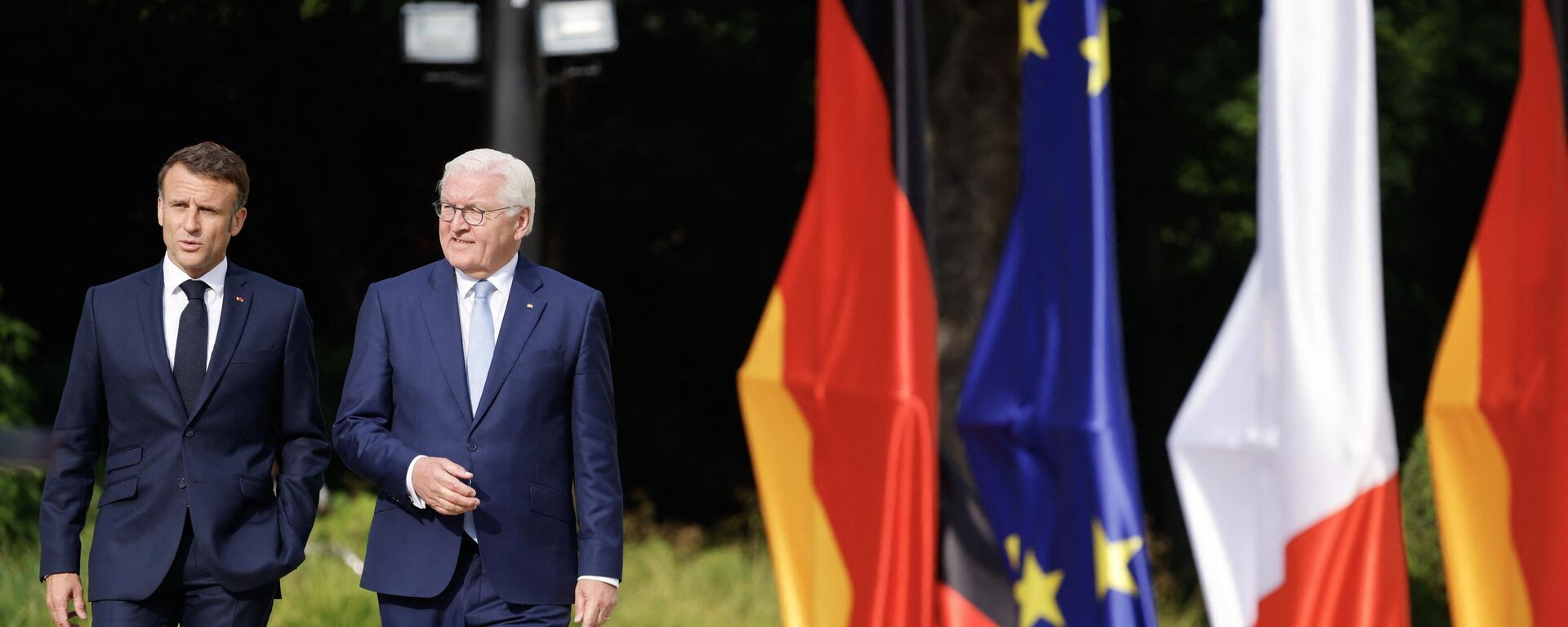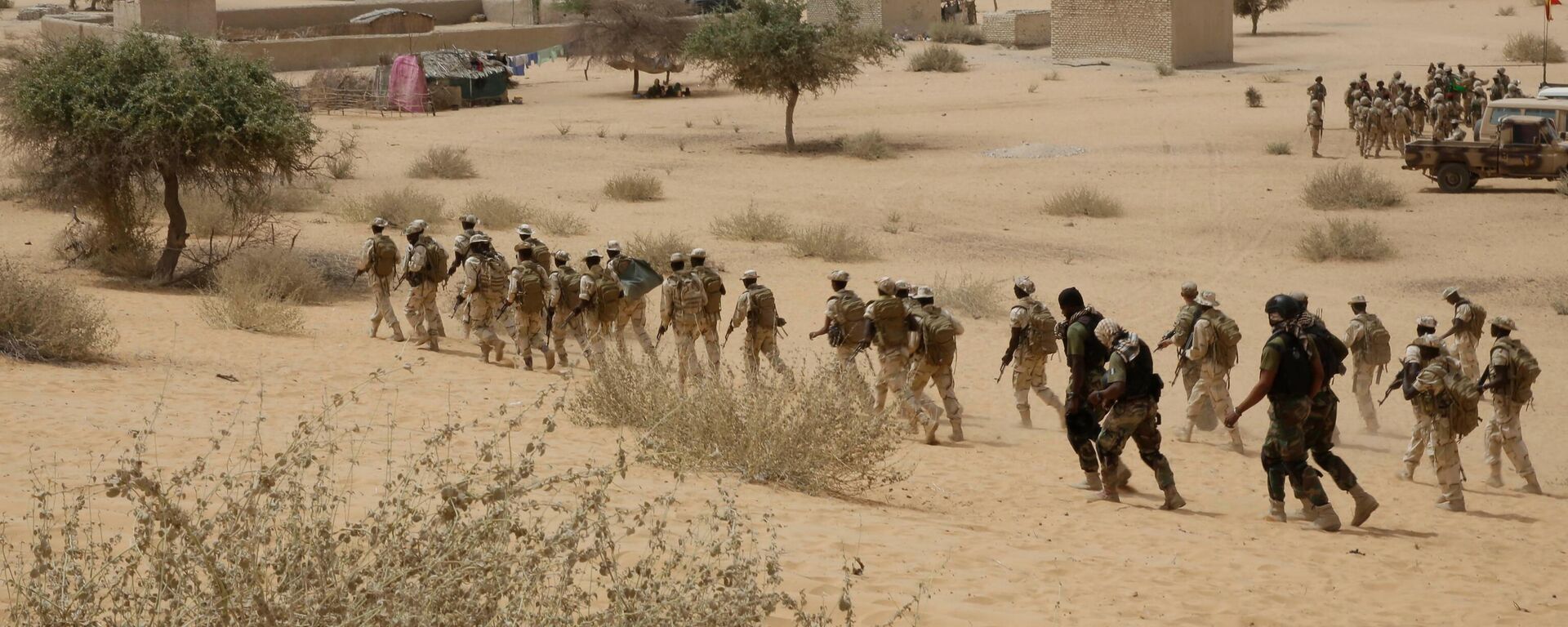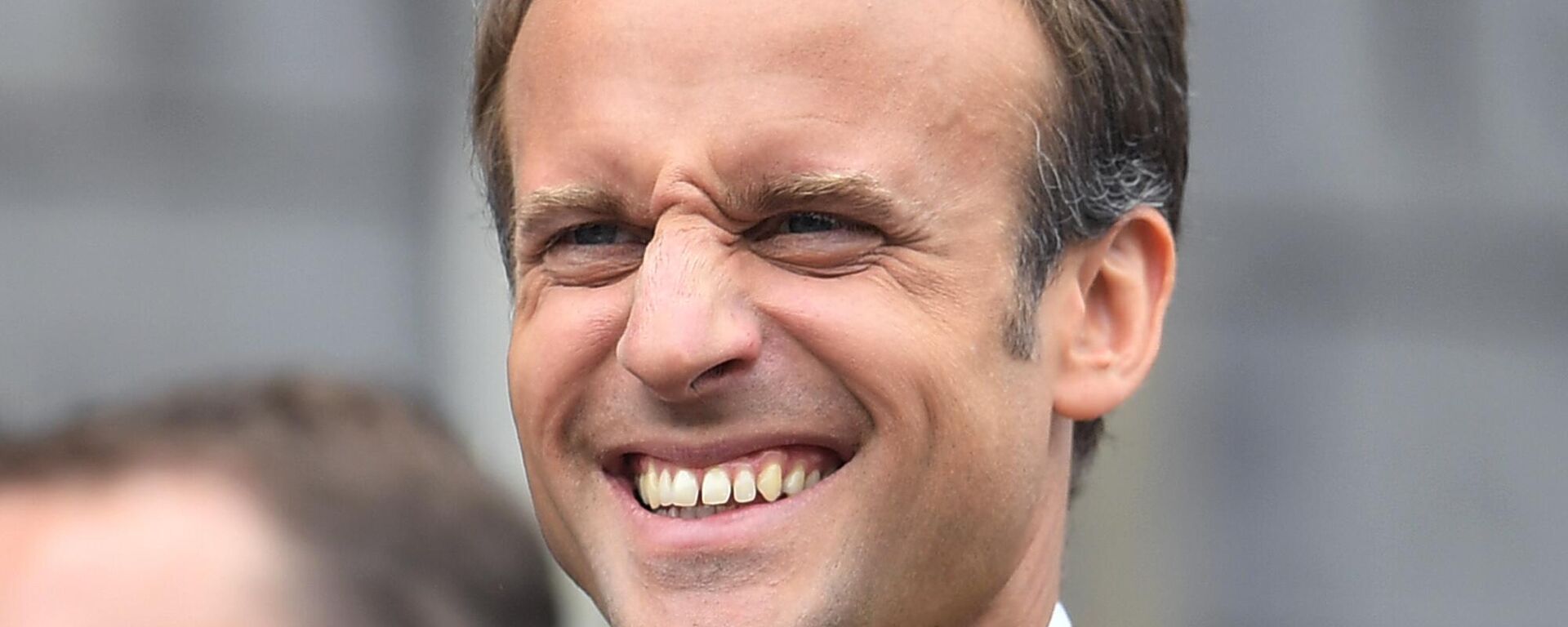https://sputnikglobe.com/20240528/macrons-call-to-double-eu-budget-is-last-ditch-attempt-to-save-blocs-relevance-1118669917.html
Macron's Call to Double EU Budget is Last Ditch Attempt to Save Bloc's Relevance
Macron's Call to Double EU Budget is Last Ditch Attempt to Save Bloc's Relevance
Sputnik International
French President Emmanuel Macron has called to double the EU's public spending during his speech at a youth festival in the eastern German city of Dresden. What's behind Macron's initiative?
2024-05-28T18:30+0000
2024-05-28T18:30+0000
2024-05-29T06:08+0000
emmanuel macron
opinion
jacques sapir
germany
france
dresden
european union (eu)
gni
european union’s multiannual financial framework (mff) for 2014-2020
europe
https://cdn1.img.sputnikglobe.com/img/07e8/03/12/1117399515_0:0:3070:1728_1920x0_80_0_0_db5bcae4ceb3c590d668ba3679a483e8.jpg
French President Emmanuel Macron told a crowd in Dresden on May 27 that Europe faces an existential threat, adding that the EU needs to increase its budget by at least twice to meet green transition, artificial intelligence and defense challenges."It is indeed difficult to build a federal European Union as long as the budget is this low. In federal states today (Germany, Brazil, India, United States, Russia, etc.) federal spending represents at least 50% of total spending, and sometimes goes up to 65-70%. But we still need to achieve unanimity."Sapir assumed that while some "small" EU states might agree with Macron's grand design, one can expect significant reluctance not only from Poland, Hungary and Slovakia, but also from Germany and Italy.Politico reported that Germany and the so-called Frugal Four – a group of fiscally conservative EU countries encompassing Austria, Denmark, the Netherlands, and Sweden – are reluctant to follow France's lead.The EU long-term budget (2021-2027) includes €1.2 trillion ($1.3 trillion) under the multiannual financial framework (MFF) and €807 billion ($877 billion) under the extraordinary recovery instrument, Next Generation EU. In addition, the 2021-2027 MFF was increased by €64.6 billion ($70.24 billion) to address the Ukraine conflict, migration and external action issues. In general, the EU budget remained largely constant at around 1 percent of the bloc's Gross National Income (GNI) since the end of the 1980s.It is not the first time that the French president has called to double the bloc's budget. Speaking at Sorbonne University on April 25, he insisted on the necessity to increase EU spending to revitalize the Old Continent's economy.Sapir explained that the only possible instrument to implement Macron's plan is through a loan with the European Central Bank (ECB) as a guarantee.According to Sapir, Macron pursues three goals in his recent call:Macron has been floating the idea of a "grand Europe" since at least 2017. However, the French leader's ruling coalition (Renaissance, MoDem, Horizons and UDI) got just 15.5% of the vote last week marking the lowest level since the beginning of the European election campaign, according to Elabe poll. In contrast, the hard right Rassemblement National (RN) list, led by French MEP Jordan Bardella, enjoys 32% of public support. The French press has already dubbed the French president's call for increased EU spending part of his European Parliament (EP) campaign. Elections for the EP will take place on June 6-9.
https://sputnikglobe.com/20240526/frances-macron-on-first-visit-to-berlin-in-24-years-to-mend-cracks-in-franco-german-unity-1118643358.html
https://sputnikglobe.com/20240521/frances-counterterrorism-operations-in-africa-failed-led-to-conflict---nebenzia-1118570331.html
https://sputnikglobe.com/20240505/macron-says-limit-of-2-consecutive-presidential-terms-takes-away-some-of-voters-freedom-1118265880.html
germany
france
dresden
Sputnik International
feedback@sputniknews.com
+74956456601
MIA „Rossiya Segodnya“
2024
News
en_EN
Sputnik International
feedback@sputniknews.com
+74956456601
MIA „Rossiya Segodnya“
Sputnik International
feedback@sputniknews.com
+74956456601
MIA „Rossiya Segodnya“
emmanuel macron, macron's dresden speech, macron's visit to germany, macron is calling for doubling eu budget, macron's ambitions as the eu leader, emmanuel macron's ruling coalition's poll numbers plummeting, european parliament elections
emmanuel macron, macron's dresden speech, macron's visit to germany, macron is calling for doubling eu budget, macron's ambitions as the eu leader, emmanuel macron's ruling coalition's poll numbers plummeting, european parliament elections
Macron's Call to Double EU Budget is Last Ditch Attempt to Save Bloc's Relevance
18:30 GMT 28.05.2024 (Updated: 06:08 GMT 29.05.2024) French President Emmanuel Macron has called to double the EU's public spending during his speech at a youth festival in the eastern German city of Dresden. What's behind Macron's initiative?
French President Emmanuel Macron told
a crowd in Dresden on May 27 that Europe faces an existential threat, adding that the EU needs to increase its budget by at least twice to meet green transition, artificial intelligence and defense challenges.
"The Dresden speech is a continuation of the federalist positions that Emmanuel Macron has always defended," Jacques Sapir, director of studies at the School for Advanced Studies in the Social Sciences (EHESS) in Paris, told Sputnik.
"It is indeed difficult to build a federal European Union as long as the budget is this low. In federal states today (Germany, Brazil, India, United States, Russia, etc.) federal spending represents at least 50% of total spending, and sometimes goes up to 65-70%. But we still need to achieve unanimity."
Sapir assumed that while some "small" EU states might agree with Macron's grand design, one can expect significant reluctance not only from Poland, Hungary and Slovakia, but also from Germany and Italy.
Politico reported that Germany and the so-called Frugal Four – a group of fiscally conservative EU countries encompassing Austria, Denmark, the Netherlands, and Sweden – are reluctant to follow
France's lead.
The EU long-term budget (2021-2027)
includes €1.2 trillion ($1.3 trillion) under the multiannual financial framework (MFF) and €807 billion ($877 billion) under the extraordinary recovery instrument, Next Generation EU. In addition, the 2021-2027 MFF was increased by €64.6 billion ($70.24 billion) to address the Ukraine conflict, migration and external action issues. In general, the EU budget remained largely constant at around 1 percent of the bloc's Gross National Income (GNI) since the end of the 1980s.
"Macron commits to an idea which he knows cannot be accepted, but where he hopes that in the event of rejection he will be able to say: 'If they had listened to me…'," Sapir continued.
It is not the first time that the French president has called to double the bloc's budget. Speaking at Sorbonne University on April 25, he insisted on the necessity to increase EU spending to revitalize the Old Continent's economy.
Sapir explained that the only possible instrument to implement Macron's plan is through a loan with the European Central Bank (ECB) as a guarantee.
"But Germany, which will already be politically opposed to such an idea, will object even more on the method and will say that Macron wants the EU to go into debt like France does. This is one of the reasons why this initiative, at least in its current form, has no chance of succeeding," the scholar remarked.
According to Sapir,
Macron pursues three goals in his recent call:
First, formally he wants to boost the federal character of the EU because he knows that this aspect is violently contested both by EU member states and the majority of the French population.
Second, politically, he seeks to assert himself as the most European of Europeans and the only political leader with a real "vision" on the future of the EU.
Third, tactically, he is probably preparing his future election as "President of Europe", a position that does not yet exist, but which he seemingly wishes to create.
"[Macron's] great fear is that the EU, both under the effect of external pressure and internal pressure, will fall apart in the next ten years," Sapir emphasized.
Macron has been floating the idea of a "grand Europe" since at least 2017. However, the French leader's ruling coalition (Renaissance, MoDem, Horizons and UDI) got just 15.5% of the vote last week marking the lowest level since the beginning of the European election campaign, according to Elabe
poll. In contrast, the hard right Rassemblement National (RN) list, led by French MEP Jordan Bardella, enjoys 32% of public support. The French press has already dubbed the French president's call for increased EU spending part of his European Parliament (EP) campaign. Elections for the EP will take place on June 6-9.





